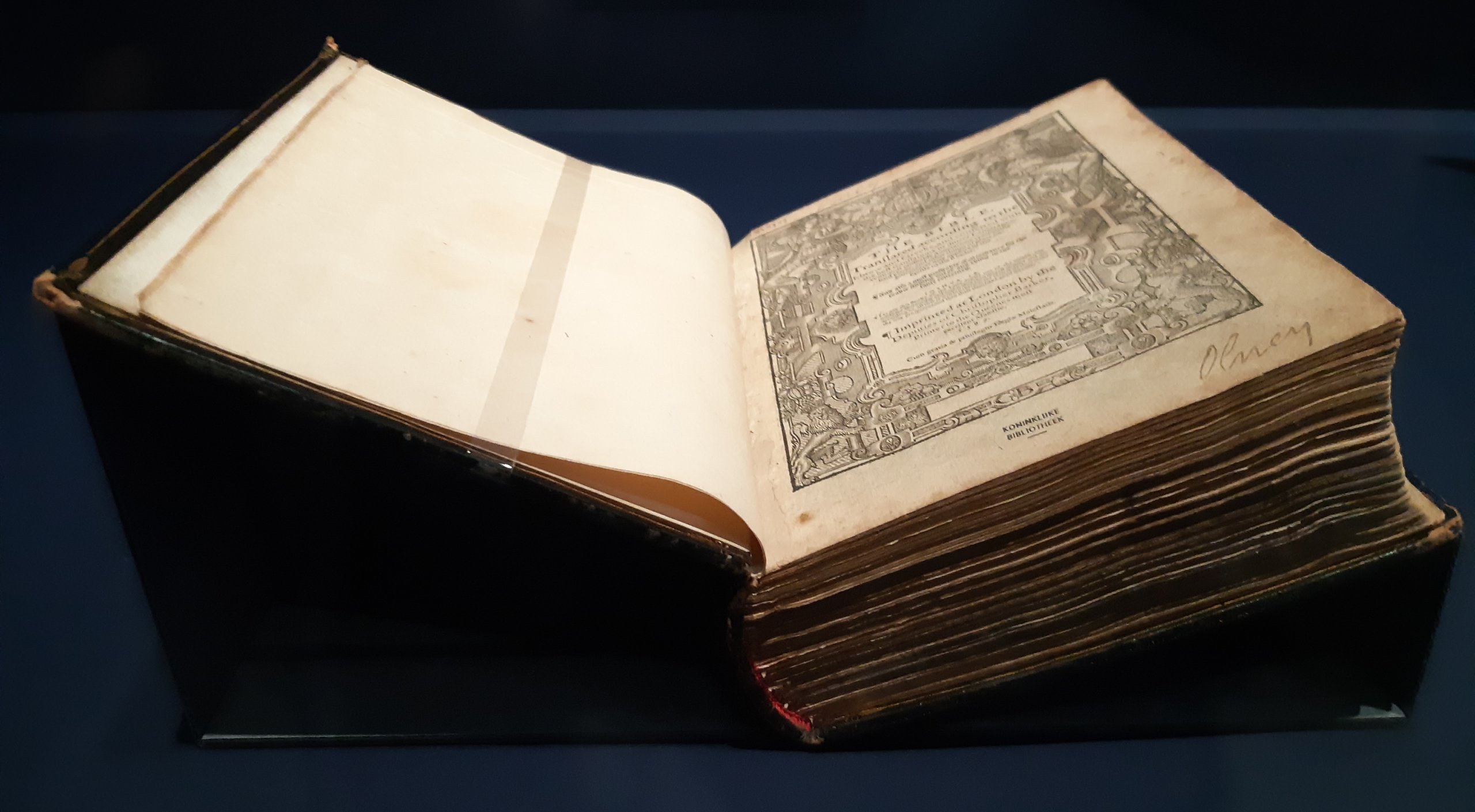- Hello, friends. Bishop Andy Luther here with another one of my mini lessons on church history. This is but one of many lessons that I do in the area with the hope that it will broaden your perspective and give you a fuller appreciation of what we call the journey of the Christian Church. Most of us who are familiar with the Bible will tell you that the first Bible that we were introduced to when we were young was the King James Version.
- 10:40For many years the King James Version was the only Bible that we knew. However the King James Version was not the first English Bible. It was preceded by the Bishops Bible, the Coverdale Bible, the Great Bible, and several others. In this presentation we’re going to take a look at the Geneva Bible of 1560. This was the first Bible to organize the text into chapters and verses which we all take for granted today. So join me as I delve into the rich history and legacy of the Geneva Bible that was produced by
- 11:26William Tyndale. Tyndale gave his life for it, Coverdale pictured here, and others completed his work. King Henry VIII eventually relented and allowed the publication of the Holy Bible in the English language. So this is not about that particular Bible, but about the Bible that came to America on the Mayflower and then disappeared into history, overshadowed by another a new Bible was published, the Geneva Bible. This Geneva Bible was groundbreaking and although little known today and mostly ignored in history, every Christian is blessed by the efforts
- 12:09of its translators and publishers. This is the Geneva Bible of 1560. Using the work of Tyndale, Coverdale and other pioneers who often put their lives in danger to bring the Bible into the lives of the common people. It was the first Bible to break the books into numbered chapters and verses. The publishers added considerable marginal notes to help people understand the verses and also cross-referenced many passages, thus uniting the Bible into a cohesive whole.
- 12:50Most people today would not know how to read or study the Bible if this information was removed. It is also invaluable to commentators and pastors. the original Hebrew and Greek to make their translations rather than the Latin phone game. Time does not permit me to go into detail on all the work that went into his translation. In England, the great Bible drew from Tyndale, the Bishop’s Bible, and the Geneva Bible. But the Bible that found its way
- 13:41into the homes of the English people was the Geneva Bible. It was easy to use and easy to study and learn from because of those marginal notes, cross-references, and being published in the common vernacular. However, the Geneva Bible was healed by both the nobility and the church.
- 14:04The problem was those pesky marginal notes and cross-references. They were critical of the growing problem of slavery, an issue for English ship captains who were beginning to make money transporting slaves from Africa to the Spanish and Portuguese colonies in South America. The notes additionally criticized the clergy, supporting the idea of lay elders
- 14:33rather than only a professional clergy class. The only solution was to block it.
- 24:40In 1568, the Bishop’s Bible was published.
- 14:45Although partially using the tender work, it mostly translated from the Latin Vulgate. It contained numerous errors and had to be revised more than 50 times over the next few years. Though it incorporated the chapter and verse breaks of the Geneva, its multiple errors and revisions were too problematic. The Geneva Bible remained
- 15:25popular and despite many reprints, the Geneva Bible did not require any revisions. When James ascended to the throne of England, he came with the opinion that God gave him the throne and that his right to rule was an absolute divine right. However, the Geneva Bible stood in his way. Maybe the people listened to the clergy preach from the Bishop’s Bible, but at home they read the Geneva Bible, taught their children from the Geneva Bible. Consequently, James assembled a team of translators in the year 1611.
- 16:15Using the idea that they were not making a new translation, but making a good one better, meaning the Vicious Bible, they published the King James Bible. It too incorporated the Geneva Bible’s chapter and verse breaks. It also included the Apocrypha, books the Roman Church used but which had been removed from the Geneva Bible. The 1560 edition did include the books in an intertestamental section. No marginal notes, no cross-references, as late as 1715, some publishers did include
- 17:00at least some marginal notes. It, however, was a publishing failure. The people did not flock to the New Bible, they continued to use the tried and true Geneva Bible. So what could the King do? He responded by banning the publishing of the Geneva Bible and authorized only his new Bible to be published in English. So from 1616 forward the Geneva Bible began to fade from history. The King James Bible underwent several revisions,
- 17:43the most important being the removal of the apocrypha, although it continued to be included in some printings into the 1800s. All of the King James Version 1866 contained the Apocrypha and the inclusion of it ended entirely in 1826 for cost savings, not because it did not belong in the Bible. Separatists, however, remained loyal to the Geneva in large part. It was during my seminary days at Harvard Divinity School in Cambridge, Massachusetts,
- 18:32I became interested in the Geneva Bible. Not too long ago, I took a number of my students to the Museum of the Bible in Washington, D.C. While there, we had the opportunity to see historical copies of the Bible used today is not the 1611 translation and interestingly, just as the original, is nearly word for word identical to the Geneva Bible. Because of the exceptionally close copy of the King James as the plagiarized version.
- 19:18It is simply hard to believe that being so close, with the exception of maybe 10 places, the King James version is not simply plagiarized rather than actual work of dedicated scholars. Although perhaps the first printers having the Geneva already typeset simply made a few adjustments and ran with it. Who knows? Happily, the 1599 Geneva Bible has been dusted off, brought out of the near total obscurity, updated into modern English spelling. Would you rather read said unto him, or Jesus said unto him, and reprinted.
- 110:04Well, friends, that takes up just about all of our time, and we certainly want to thank you for yours. Please be on the lookout for future updates and lessons that we will produce in the future. Also, do consider taking one of our online courses. Also, do consider taking one of our online courses. Until next time, we look forward to seeing you real soon.
The Geneva Bible



